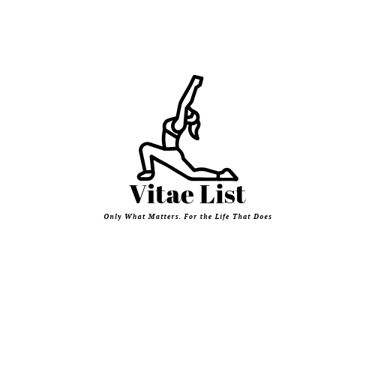10 Tips to Enhance Recovery and Optimize Sleep Quality
Discover the top 10 proven ways to boost recovery and optimize sleep—from science-backed supplements to lifestyle habits that actually work. This guide helps you recharge faster, sleep deeper, and perform better every day.
WELLNESS
Vitae List
5/20/20252 min read


Understanding the Importance of Sleep in Recovery
Achieving optimal recovery is essential for physical and mental well-being. Sleep plays a pivotal role in this process, as it allows the body to repair itself, and refreshes the mind, contributing to improved performance.
Tip 1: Establish a Consistent Sleep Schedule
Consistency is key in regulating your body's internal clock. Going to bed and waking up at the same time every day fosters better sleep quality. This practice sets a routine that signals your body when to relax and when to engage.
Tip 2: Create a Restful Environment
Your sleeping environment significantly impacts your sleep quality. Ensure your bedroom is cool, quiet, and dark. Consider using blackout curtains or a white noise machine to mitigate distractions that may disrupt restful sleep.
Tip 3: Limit Screen Time Before Bed
The blue light emitted by phones, tablets, and computers can interfere with the production of the sleep hormone melatonin. To optimize sleep, try to shut down electronics at least an hour before bedtime.
Tip 4: Incorporate Relaxation Techniques
Practicing relaxation techniques such as meditation or deep-breathing exercises can help calm the mind and prepare the body for a restful night's sleep. Dedicating time to unwind can greatly enhance recovery.
Tip 5: Monitor Lifestyle Choices
Caffeine and alcohol consumption can hinder sleep quality. It’s advisable to limit these substances, especially in the hours leading up to bedtime. Staying hydrated and eating a balanced diet also supports better recovery.
Tip 6: Exercise Regularly
Engaging in regular physical activity promotes better sleep and recovery. Whether it's yoga, running, or weight training, exercise helps reduce stress and can lead to deeper, more restorative sleep.
Tip 7: Keep a Sleep Journal
Keeping track of your sleep patterns can identify habits that improve or hinder sleep quality. Note how you feel after different amounts of sleep to discover what works best for your body.
Tip 8: Prioritize Nutrition
Eating sleep-friendly foods rich in magnesium and tryptophan can support better sleep. Foods such as nuts, seeds, and turkey can help enhance recovery by inducing relaxation.
Tip 9: Manage Stress Effectively
Chronic stress can profoundly disrupt sleep quality, which in turn affects recovery. Finding ways to manage stress, be it through time management, counseling, or hobbies, can contribute to better sleep.
Tip 10: Consult with a Healthcare Professional
If you continue to struggle with sleep despite implementing these strategies, it might be beneficial to consult with a healthcare professional. They can provide further insight and support tailored to your specific needs.
In conclusion, optimizing sleep is integral to enhancing recovery. By applying these ten tips, individuals can improve their overall sleep quality and well-being.
